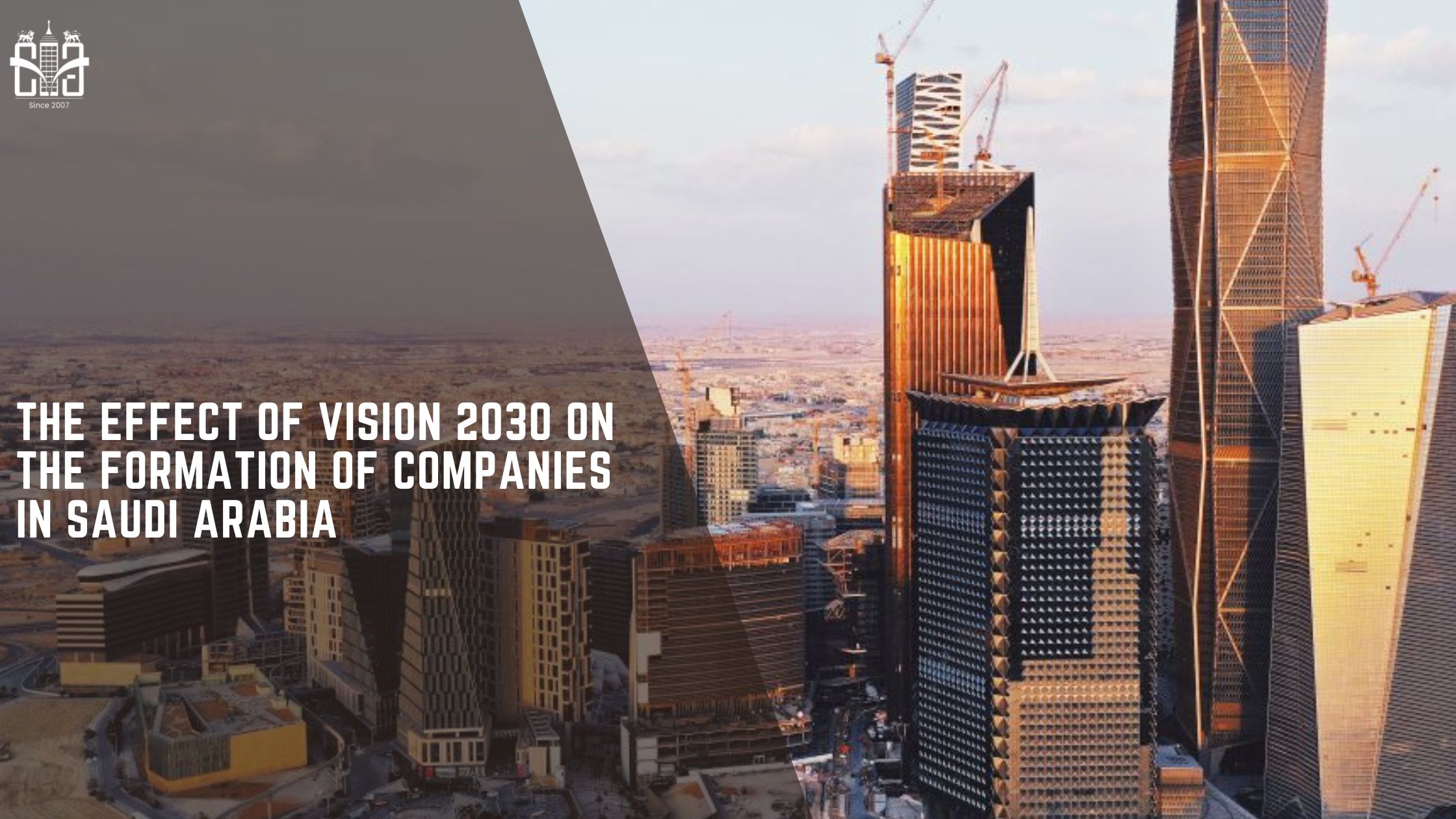
THE EFFECT OF VISION 2030 ON THE FORMATION OF COMPANIES IN SAUDI ARABIA
TRANSFORMING SAUDI ARABIA'S ECONOMIC LANDSCAPE: VISION 2030 The hydrocarbon industry is the primary driver of Saudi Arabia's economy, which is one of the largest in the Middle East. The vast oil reserves of Saudi Arabia have historically been the economic cornerstone of the country, which is globally recognized as a prominent participant in oil production and exportation. In recent years, the Saudi government has been endeavoring to diversify its economy through Vision 2030, under the leadership of HRH Prince Mohammad Bin Salman Al Saud. In 2016, Saudi Vision 2030 was implemented with the objective of reducing dependence on oil, fostering development in a variety of sectors, such as tourism, entertainment, logistics, and technology, and attracting foreign investment.
GENERAL AUTHORITY FOR STATISTICS (GASTAT)
The most recent data from the GASTAT indicates that Saudi Arabia is experiencing significant economic trends, such as: GDP INCREASE: • 3.8% in Q1 2023 • 1.2% in the second quarter of 2023 • Q3 2023: 4.5% contraction (as a result of voluntary sharp oil production reduction) GROWTH IN THE NON-OIL SECTOR: • 3.6% in the third quarter of 2023 • 6.1% in the second quarter of 2023 • 5.4% in Q1 2023 These figures demonstrate the ongoing success of the national transformation policy that has been implemented, which has diversified sources of income beyond hydrocarbons. The country is no longer dependent on GDP numbers, as emphasized by the Minister of Finance, Mohammed Al-Jadaan. Rather, the nation has redirected its attention to investments in the non-oil sector and genuine development. The Saudi economy has emerged as the top performer in terms of growth rate in 2022 and the second highest among G20 nations to date as a result of this transition. The Saudi Arabia's robust economic development and strong fiscal position are further validated by the IMF assessment report, which predicts an average growth rate of 4.9% in the non-oil GDP in 2023 and an overall GDP of 4% in 2024. Furthermore, it is anticipated that the inflation rate will remain consistent at 2%.OIL RELIANCE DIVERSION
The Saudi government's ongoing dedication to legislative and regulatory reforms is instrumental in promoting economic growth and diversification. This strategic approach actively promotes private sector participation in the economy by privatizing, cultivating strategic partnerships, and attracting foreign investment to the local market. These initiatives are illustrated by the subsequent examples:
- Saudi Arabia has unveiled a $800 billion investment plan in the tourism sector and a total of SAR 50 billion to construct over 21 entertainment destinations throughout the nation. The objective of these advancements is to increase the tourism sector's contribution to the GDP to 10% and attract 100 million visitors by 2030.
- On the inaugural day of the Saudi Agricultural Exhibition 2023, 16 agreements of $800 million in investments in the agricultural sector were recorded. The Kingdom's vision to attract industrial investments estimated at SAR 1 trillion by 2030 was further affirmed by the Minister of Industry and Mineral Resources. To date, foreign investments in new licenses have totaled SAR 1.6 billion, with a particular emphasis on critical sectors such as the production of food products, non-metallic minerals, rubber, and plastic products, as well as paper and paper products.
- Saudi Arabia has declared its intention to establish 60 logistics zones by 2030 as part of its efforts to enhance its economic diversification and establish itself as a global hub for logistics and a premier investment destination.
- Additionally, the Saudi Central Bank has implemented a thorough evaluation of its fintech strategy, with the objective of increasing the current number of fintech companies to 525. By 2030, it is anticipated that this will contribute over SAR 13 billion to the GDP. It is anticipated that by 2025, investments in the IT and educational technology sectors will amount to SAR 103 billion.
Encourage the establishment of a regional headquarters (RHQ)
The objectives of Vision 2030 are closely aligned with the enforcement of the Regional Headquarters policy, which permits multinational companies to relocate their regional offices to the Kingdom before 2024 in order to capitalize on government contracting. This initiative offers a promising opportunity to attract foreign investments from multinational companies, thereby fostering value creation and diversifying the Kingdom's economy beyond its dependence on oil. The Kingdom has announced the issuance of over 180 RHQ licenses as of the end of Q3 2023, which suggests a growing interest in this strategic approach. In exchange, the government has established a variety of incentives for RHQ licenses, such as:- A 10-year Saudiization exemption and the provision of a spousal work permit
- An extension of the dependent age limit to 25 years old
- A waiver of professional accreditation
- A tax exemption









